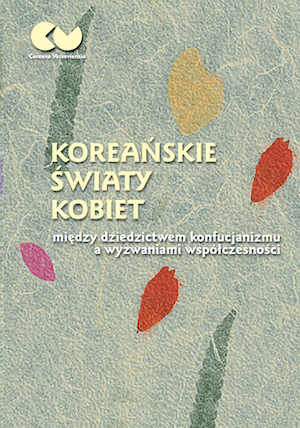Traktat Naehun jako kanon nauk moralnych dla kobiet i jego znaczenie w XV-wiecznej Korei
The Role of Naehun as a Moral Primer for Educating Women in XVth Century Korea
Author(s): Kamila Kozioł
Subject(s): Cultural history, Studies of Literature, Other Language Literature, Philology
Published by: Wydawnictwa Uniwersytetu Warszawskiego
Keywords: Naehun; Queen Sohye; women’s education; Sohak; literary education; yŏllyŏ; Chosŏn
Summary/Abstract: The subject of the analysis is a fift eenth-century staple of Korean literature, Naehun (Instruction for the Inner Quarters). The book is a record of moral and life teachings for women from the court elite, and was created by Queen Sohye, based on various Chinese sources and biographies. In it, the original teachings and parables written in classical Chinese (hanmun) were accompanied by the translation into Korean. The vernacular version added to the text proves that it had an important educational role for people from various social strata, beyond the circle of aristocracy. Falling in line with the Confucian tradition, ethics teachings are integrated with lessons on ceremonial rites, and morals are taught through recalling patterns of behavior from the legendary and mythical Chinese traditions, with the dominant role of the lives of famous women. The educational aspect of the text covers many areas of domestic life, including admonitions on managing a household, family life and children’s education. Naehun has a prominent place in the cultural heritage of Chosŏn Korea, and is valued as a conscious representation of the world of women, their needs and expectations, canons of feminine knowledge and morality.
Book: Koreańskie światy kobiet – między dziedzictwem konfucjanizmu a wyzwaniami współczesności
- Page Range: 13-45
- Page Count: 33
- Publication Year: 2019
- Language: Polish
- Content File-PDF

